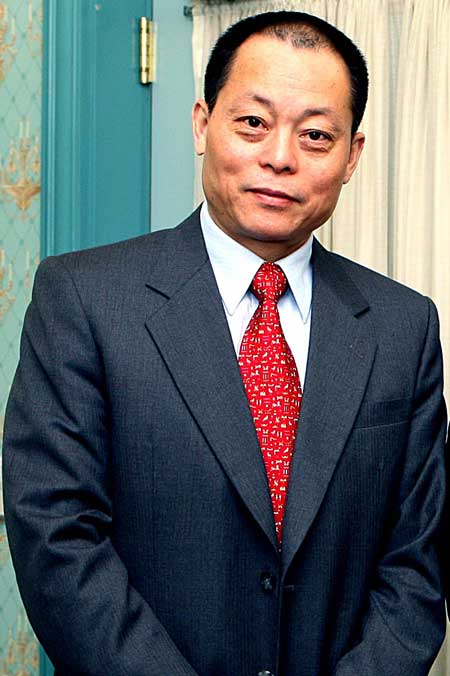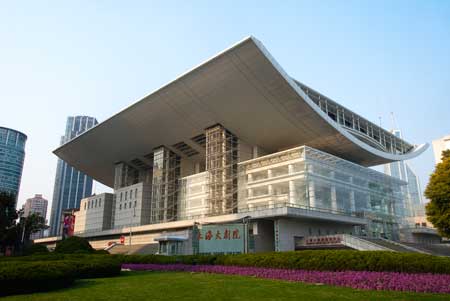The toughest job in culture

He has one of the toughest jobs in China – helping Shanghai become the cultural metropolis of China. Zhang Zhe is not famous but, as the president of the Shanghai Grand Theater and a senior official with the Shanghai Municipal Administration of Culture, Radio, Film, and Television, he is totally involved in this mission.
"Cultural development is a vital and indispensable part of a society. Without cultural development, society is like a plane without wings.
China began to realize this late. Great importance was attached to economic development after the reform and opening-up policy but it was not until the 16th National Congress of the Communist Party of China in 2002 that any attention was given to culture," Zhang told a gathering at the Jing'an Library on Tuesday.
"One of the big problems is how to attract audiences to cultural centers like the Shanghai Grand Theater. A lot of people in China will not go to these centers even if they can afford to. They have not got the habit yet," Zhang said.
The annual total box office for theaters in Shanghai is about 725 million yuan ($110 million), but the Broadway box office totals about $1 billion – almost 10 times the Shanghai figure. While most overseas countries spend 10 percent or more of their GDP on culture, China spends less than 3 percent, he said.
One problem is finding funding for cultural centers. "Many local governments have established cultural centers, some in the less developed areas. But they are not doing well because of their locations and a lack of money and administrative skills.
Government should not only be interested in building centers, but also in funding the centers to run properly afterwards. The Shanghai Grand Theater receives about a 7 percent subsidy and the National Center for the Performing Arts in Beijing receives 25 percent.
But centers in developed countries receive more than 50 percent in subsidies," Zhang said.
"All concert halls in the world lack money. In foreign countries, they have better tax systems to encourage companies to donate money. However, only a few companies in China are willing to give money to us.

We receive no more than 2 million yuan from companies each year and most companies agree to donations under the condition that we publicize them. The Metropolitan Opera in New York raises at least $100 million each year from company donations."
Zhang said while the Shanghai Grand Theater targeted the high-end market for most of its shows, setting ceiling prices at about 1,000 yuan, it was trying to arrange more low-priced entertainment as a public service.
This weekend it will offer preferential tickets to local people for 50 yuan to go and see Buddhist music performed by monks from Wutai Mountain, Shanxi Province.
Audience behavior was improving as well – helped by ushers who hold up signs telling people not to take photographs during a performance and by staff members targeting rogue audience members with red laser beams if they try to take pictures.
Zhang's trip to the top of the cultural scene has taken a roundabout route. After graduating in economic law he worked in government departments in Beijing and returned to Shanghai in 1992 to take part in the economic changes in Pudong New Area.
He was appointed the deputy director-general of the Shanghai Municipal Administration of Culture, Radio, Film and Television in 2002 and became the president of the Shanghai Grand Theater in the same year. "These jobs all required good administrative skills and the experience of working in different fields helps me run the theater."
He said he was interested in all forms of theater and music but admitted to a soft spot for the traditional Suzhou Pingtan (an opera form involving storytelling and ballad singing in Suzhou dialect). "When I was little, my father often took me to hear Pingtan but I was not interested.
Eventually I grew to appreciate it and became a fan. Now I am a member of a Pingtan performing group in the Yangtze River Delta region and I am working to promote this old opera form in big theaters instead of the traditional opera houses.
We staged Pingtan in the Grand Theater last year, combining it with a Western-styled symphony orchestra."
 0
0 







Go to Forum >>0 Comments